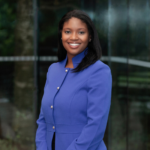Opening Doors: Diploma Privilege and The Career Well-Being of New Lawyers
Fri, Jul 17th, 2020 | by Miles Mediation and Arbitration | Article, News | Social Share
 In response to the coronavirus pandemic, states across the country have opted to virtually administer, postpone or even cancel their bar exams for the time being. Many of those in favor of cancellation also believe that the law class of 2020 should be granted temporary “diploma privilege,” thus giving this crop of students a license to practice law without having to satisfy the traditional testing requirements. This temporary dispensation would be a logical answer to the current national crisis as it would eliminate the security risks of virtual exams and the health risks associated with large groups congregating in enclosed spaces for several hours over multiple days. It would also provide recent grads, who face one of the toughest job markets in modern history, much-needed help that will enable them to start their careers and increase their capacity to earn a living.
In response to the coronavirus pandemic, states across the country have opted to virtually administer, postpone or even cancel their bar exams for the time being. Many of those in favor of cancellation also believe that the law class of 2020 should be granted temporary “diploma privilege,” thus giving this crop of students a license to practice law without having to satisfy the traditional testing requirements. This temporary dispensation would be a logical answer to the current national crisis as it would eliminate the security risks of virtual exams and the health risks associated with large groups congregating in enclosed spaces for several hours over multiple days. It would also provide recent grads, who face one of the toughest job markets in modern history, much-needed help that will enable them to start their careers and increase their capacity to earn a living.
Those opposed to diploma privilege argue that bar exam passage protects the public from subpar lawyers. It is the same argument made in favor of traditional law schools and against apprenticeship programs. But as any practicing attorney can tell you, neither elite schooling nor bar exams effectively gatekeep our profession from those who are unfit. The role they truly perform, with their burdensome demands on one’s time and income, is to keep our profession as limited in number as possible—a tactic that unfortunately exists at every stage of a legal career.
Listening to lawyers recount their first day of law school might give you the impression that we all attended the exact same class on the exact same day. The story usually involves a professor gleefully telling a roomful of nervous students to take a good look to their left and right and say hello to their classmates because some horrifyingly high percentage of them will not make it to graduation day. And while this statement often comes true, I know it to be a self-fulfilling prophecy. Law school starts out on exclusionary notes of fear and intimidation, so it is not surprising that many students fail to complete the endeavor. The process is often compared to military boot camp in that both are designed to break participants out of old ways of thinking to create new patterns. Yet I have never heard a reasonable explanation of why law school must be emotionally devastating.
This damaging behavior, akin to fraternity-level hazing, eventually becomes modus operandi for how many firms treat their associates during the early years of practice. This in turn causes many to change career paths and/or leave the profession entirely. And for those who do survive the toxicity, firm life is manageable until other priorities, such as children, have to take precedence. At that point, many firms prove unbendable when it comes to altering their organizational policies so that they empower their associates to meet both professional and family obligations. Add in factors such as gender, race, or sexual orientation and the number of people who advance in wealth and firm leadership are noticeably abysmal. And while lawyers may complain about the bar exam and firm culture—and some may even recognize the inequities of the overall approach—most by and large passively accept this injurious system despite it not reflecting the actual needs of real-world practice.
Both law school and the bar exam set the stage for young lawyers to not just receive but to expect, and thus acquiesce to poor treatment from their colleagues and superiors. So, it is not surprising that lawyers have an addiction and suicide rates that far outpace other professions. These mental health issues occur across all levels of experience and income. Yet us lawyers, who voluntarily perpetuate this cycle, can right now disrupt this harmful status quo and press our state bars to grant a temporary diploma privilege to current graduates. In the midst of a pandemic, our profession has an obligation to not turn our collective backs and instead deliver for the class of 2020 a benefit that will undoubtedly open doors of opportunity for many deserving young people.
ABOUT WINTER WHEELER
Winter Wheeler mediates complex disputes in areas of wrongful death, catastrophic injury, personal injury, premises liability, legal malpractice, medical malpractice, products liability, automotive and trucking liability.


